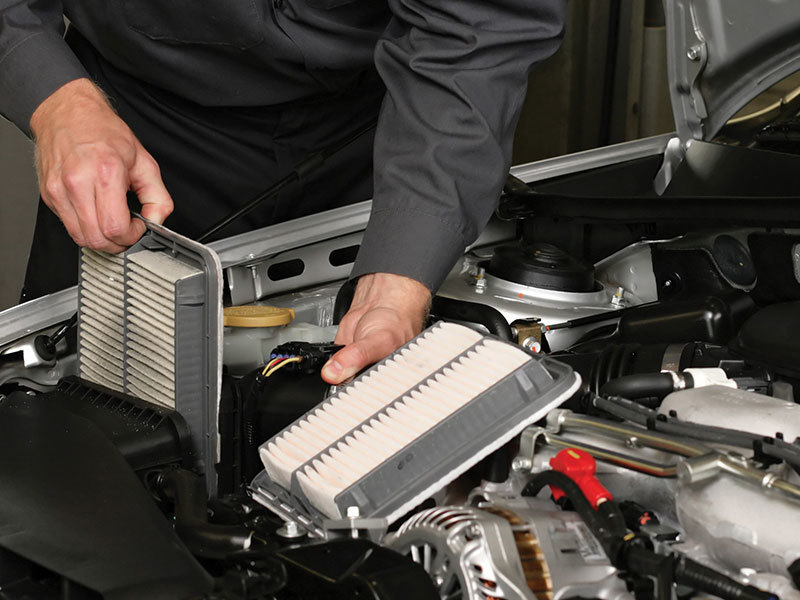Air Cabin Filter: Everything You Need To Know
An air cabin filter is an important component in any vehicle's heating and cooling system. It helps protect the passengers from contaminants in the air they breathe. Learn more about this part of your vehicle and how to care for it properly.
Cabin Air Filter
The cabin air filter in a vehicle helps remove harmful pollutants, including pollen and dust, from the air you breathe within the car. This filter is often located behind the glovebox and cleans the air as it moves through the vehicle's HVAC system. If you notice that your car has an unpleasant odor or the airflow has decreased, consider replacing the cabin filter to give the system, and yourself, a breath of fresh air.
This filter is a small pleated unit, often made of an engineered material or paper-based, multifiber cotton. Before air can move into the interior of the car, it goes through this filter, trapping any contaminants within the air to prevent them from infiltrating the air you breathe.
Most late-model vehicles contain cabin air filters to catch airborne material that can make it less pleasant to ride in a car. Cars.com reports that if you suffer from allergies, asthma, or other health conditions that impact your respiratory health, the cleanliness of the air you breathe is especially important. According to AutoZone, whether you're behind the wheel or riding as a passenger in a vehicle, you deserve healthy, clean air to breathe. The best way to make sure the air is clean is to change the cabin air filter as frequently as the auto manufacturer recommends.
Within the owner's manual for your car, you might find mileage stamps for recommended cabin air filter changes, although they vary depending on the type of vehicle and manufacturer. Champion Auto Parts reports that some recommend changing every 15,000 miles, while others recommend a change at least every 25,0000-30,0000 miles. Each manufacturer has its own recommendation, so reviewing the manual for your specific make and model will provide you with insights into what it needs.
The area where you drive can also play a role in how often you change the filter. Those who drive in urban, congested areas or places with poor air quality might need to replace their filters more frequently. If you live in a place with a desert climate, your filter might get clogged with dust faster, requiring frequent changes.
If you don't have your owner's manual or you want to know the signs that your filter needs changing, watch for:
·Reduced or weak airflow, even when the heat or air conditioner is set to high
·A whistling sound coming from the cabin air intake ducts
·Musty, unpleasant odors coming through the air in your vehicle
·Excessive noise when the heating or cooling system is running
If you are experiencing any of these signs in your car, consider replacing the filter to see if that resolves the problem.
Other Steps To Protect Your Vehicle
You can take additional steps to maintain air quality and prevent other allergens from settling in your car:
·Vacuum upholstery and carpeted floor and mats regularly.
·Wipe down surfaces, including door panels, steering wheel, console, and dashboard.
·Check the weather-stripping of the doors and windows for a proper seal.
·Clean up spills right away to prevent mold growth.
Problems Associated With a Dirty Filter
A clogged, dirty air filter can cause other issues for both you and your car. One is a decline in your health, as pollutants can move through the air and cause allergic reactions or breathing problems. A dirty filter can't do its job properly and filter out the contaminants, so it's important to replace the filter in your car frequently. Consider replacing it every year in February before the spring allergy season begins.
Another problem that comes with a clogged filter is poor HVAC efficiency. As a result, your car's heating and cooling system has to work harder, potentially causing the blower motor to burn out. Poor efficiency also leads to a loss of airflow, which can make your car feel less comfortable as the seasons change.
Weakened airflow also impacts the system's ability to clear fog or condensation from the car's windows. Dirty air can cause condensation to build up on the windshield, making it hard to see the road ahead of you. By replacing the filter, you should notice that the windows are clearer and visibility is better.
TAG:
Related Posts
Must-know signs your intake air filter needs to be changed









